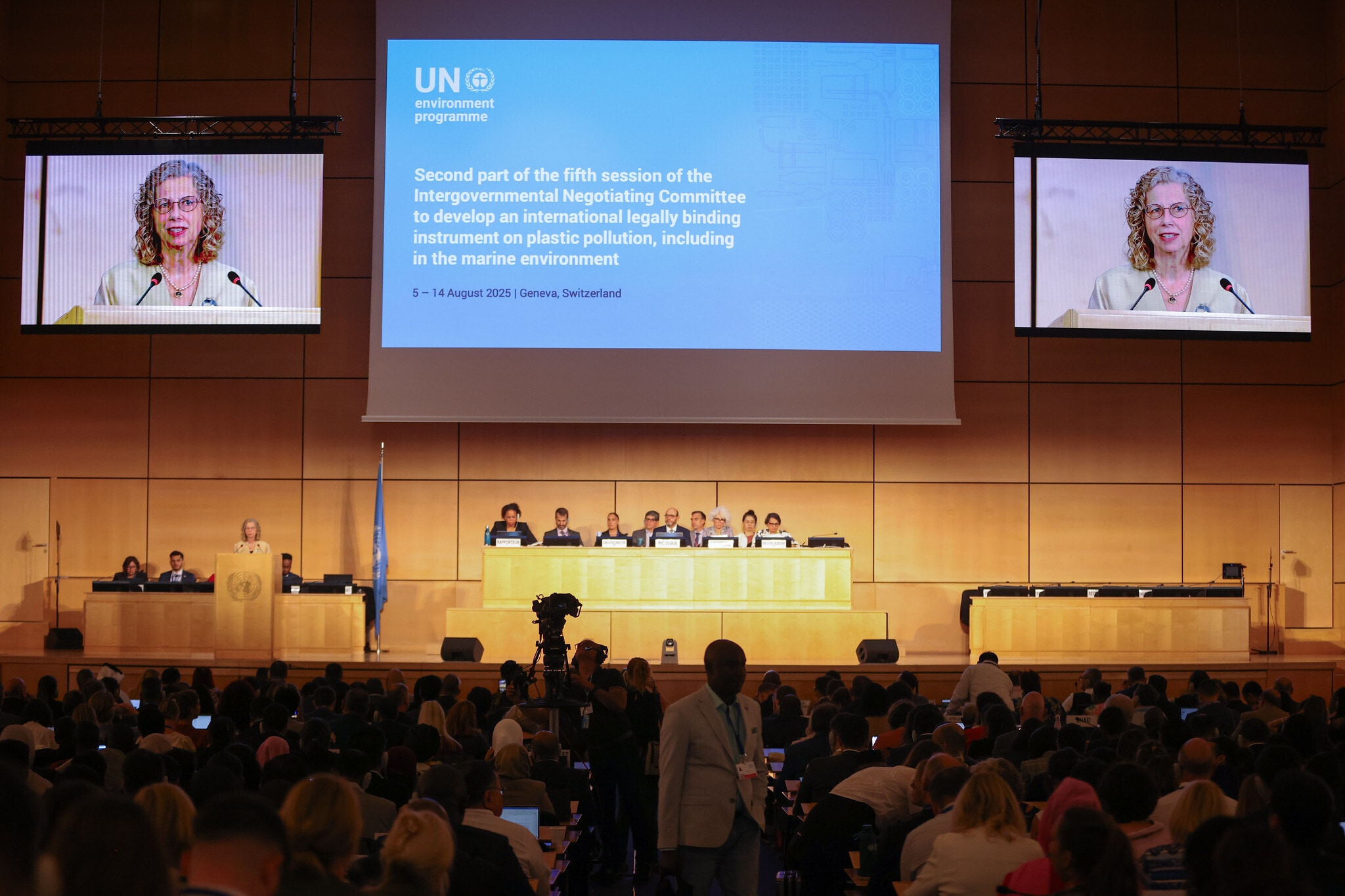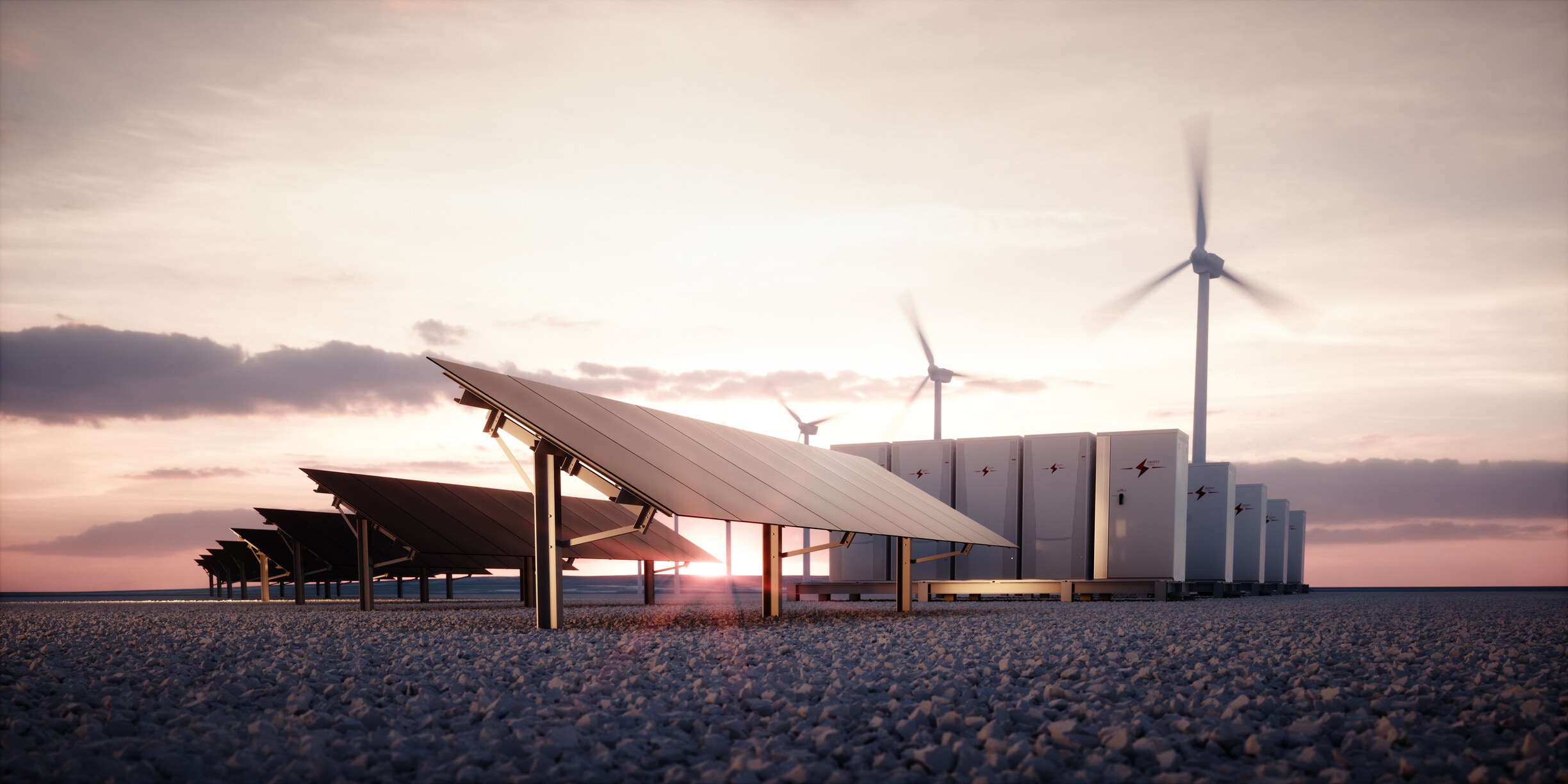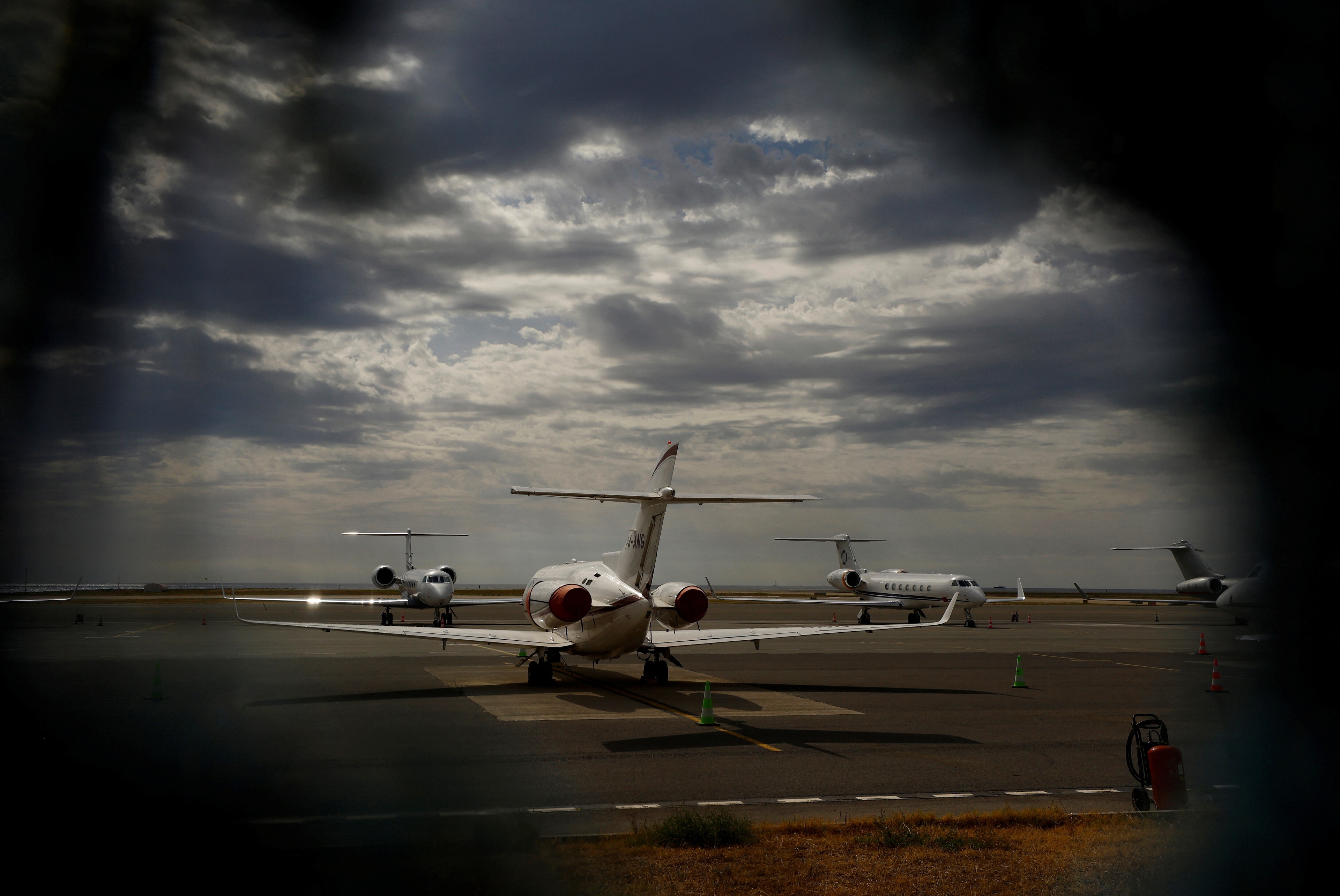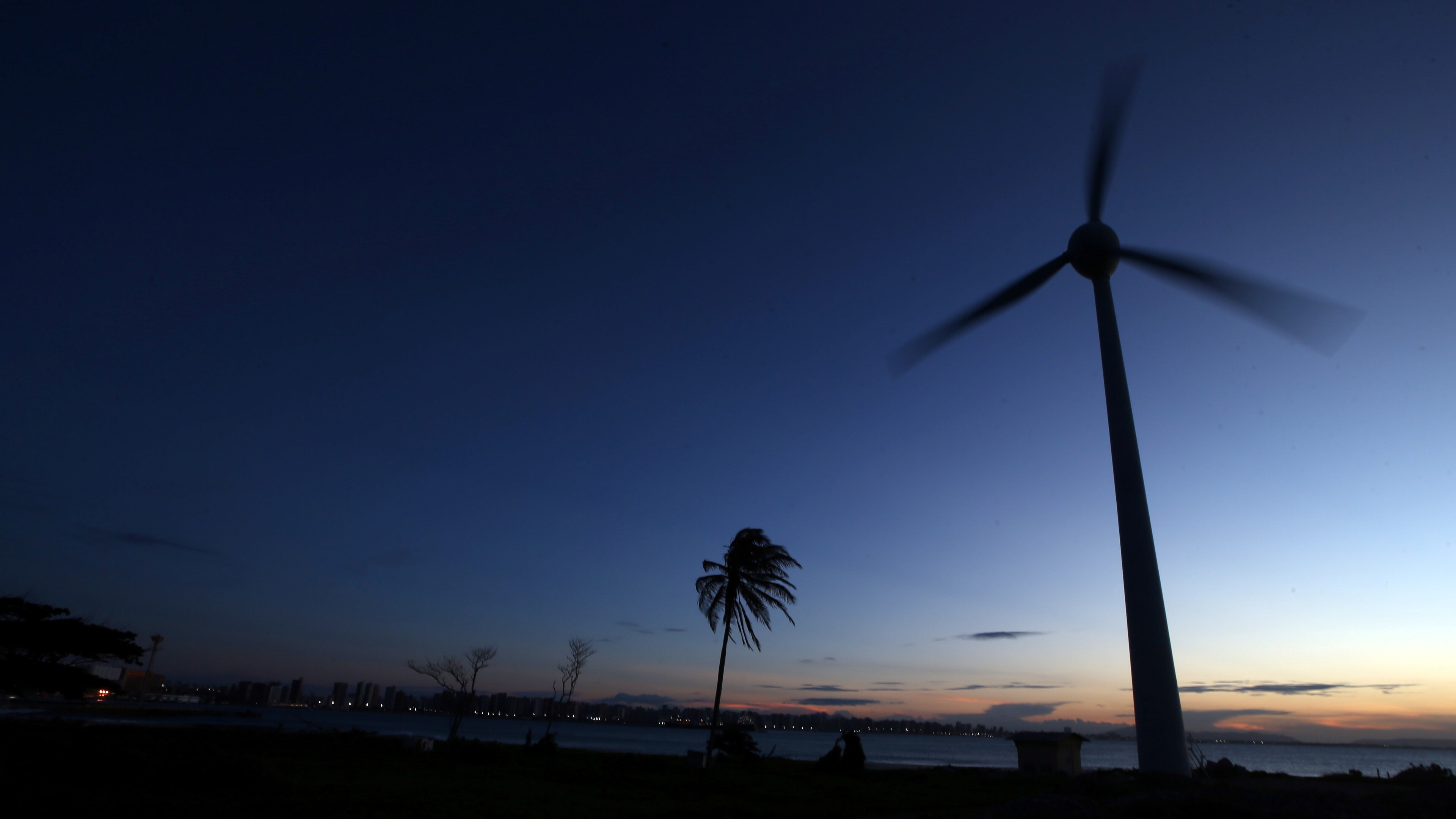'Good enough' global cooperation is key to our survival

Climate change is just one of the existential global dangers that require multilateral solutions.
Image: REUTERS/Jorge Adorno
Stay up to date:
Climate Crisis
The future feels more threatening and ominous than ever. The sense of doom and gloom is deepening, not least in the West. The daily news headlines do not help. We are told that tensions between the US and North Korea, Iran, Russia or China could flare-up into a global conflagration.
We are informed that the rise of AI will eliminate most jobs and potentially humans. We are witnessing how social media is dividing societies and undermining liberal democracy. And we are reminded almost hourly about how climate change is leading to mass extinction.
Any one of these issues is enough to make us throw in the towel in despair. That would be precisely the wrong thing to do. While these and other threats are real and daunting, none of them are absolutely guaranteed. In fact, the only certainty we have in an era of exponential change is the guarantee that our future is uncertain.
This unremarkable insight is hardly cause for celebration. And it is most definitely not a call for complacency. If anything, it is a reminder that we have the responsibility to do everything we possibly can to build a world that prevents these calamitous events from occurring.
Some modesty is called for. The truth is that we have never been particularly good at predicting the future. To the contrary, some of our smartest thinkers have been extremely good at getting things spectacularly wrong.
For more than a century social scientists have missed the "big events" that changed the course of history. Most of them were stunned by the start of the First and Second World Wars, shocked by the end of the end of the Cold War, and caught unawares with everything from 9/11 to the 2008 financial meltdown, the Arab Spring, Brexit and the election of Donald Trump. It is important to acknowledge our limited capacity for prognostication and adjust our behaviour and expectations accordingly.
Back in 1989, the future looked bright and promising. Liberal democracy and market capitalism had prevailed. The US was the lonely super power. Few analysts anticipated the spectacular rise of China and India much less the explosive market turmoil in 1997 and 2008, the return of reactionary nationalism and the rise of anti-globalism. And yet what is astonishing is how quickly all this tumult has been accepted not just as if it were inevitable, but that it constitutes the "new normal".
So is the future dark and dystopian as growing numbers of westerners – especially Americans and Europeans – are inclined to believe? The answer is it might be, but this is far from a foregone conclusion.
It is worth underlining that people living in the west and the east have never had it so good. While hard to believe, across virtually every metric of human progress we are living the best years of the roughly 200,000 year history of homo sapiens. And despite recent signs of push-back against globalization and democracy, there has never been more global cooperation or a larger number of people living in democratic countries in history.
To survive the next century, even more global cooperation is essential. Going it alone is not an option. The only way to tackle the biggest existential threats is for nation states, along with companies, cities and civil societies, to develop common understandings of their shared challenges and work together to craft pragmatic solutions. The 2030 Sustainable Development Goals are a positive expression of global collaboration, a reminder of our awesome potential for collective action.
We must advance ambitious, innovative and radical ideas. But we should simultaneously reform and renew, rather than abandon, international institutions, from the United Nations and World Trade Organization to the G20 and development banks, including new ones like the Asian Infrastructure Investment Bank. Effective cooperation requires reinforcing, not weakening, regional alliances and arrangements as the world transitions to a multi-polar order.
There is no shortage of daunting existential global dangers that require multilateral responses. These range from radical action to mitigate and adapt to climate change, to regulating AI and the proliferation of weapons of mass destruction.
The priority list is long and growing, including ensuring inclusive growth and reducing gaping inequalities, preventing pandemics and superbugs, regulating genetic and biological engineering, developing rules to manage cyber security, managing migration and refugee flows and ensuring enforceable trade rules for the 21st Century global economy. Yes, the world is more complex and messier than in the past. Get used to it.
The business of building global cooperation has never been easy. It requires a common baseline of facts, the ability to understand the viewpoints of the "other", enlightened leadership and the forging of trust to achieve collective responses that may well be sub-optimal.
It requires the foresight and wisdom to operate not just in the national, but also the regional and international interest. At a time of digitally-enabled fake news, sharpening polarization, and rising populism, this is not straightforward. But when all citizens everywhere are facing potentially civilization-ending threats, multilateralism is not an option – it is a necessity.
More than ever, we must strive to achieve optimum solutions while recognizing that the outcomes will almost certainly be imperfect, and it may sometimes feel like we are muddling through. But like it or not, good enough global cooperation is key to our common survival.
Don't miss any update on this topic
Create a free account and access your personalized content collection with our latest publications and analyses.
License and Republishing
World Economic Forum articles may be republished in accordance with the Creative Commons Attribution-NonCommercial-NoDerivatives 4.0 International Public License, and in accordance with our Terms of Use.
The views expressed in this article are those of the author alone and not the World Economic Forum.
Related topics:
Forum Stories newsletter
Bringing you weekly curated insights and analysis on the global issues that matter.
More on Climate ActionSee all
Lim Chow-Kiat
August 21, 2025
Tom Crowfoot
August 20, 2025
Charlotte Edmond and Rebecca Geldard
August 19, 2025
Yufang Jia and William Jernigan
August 18, 2025
Jürgen Karl Zattler and Adrian Severin Schmieg
August 18, 2025
Piyush Verma
August 18, 2025







